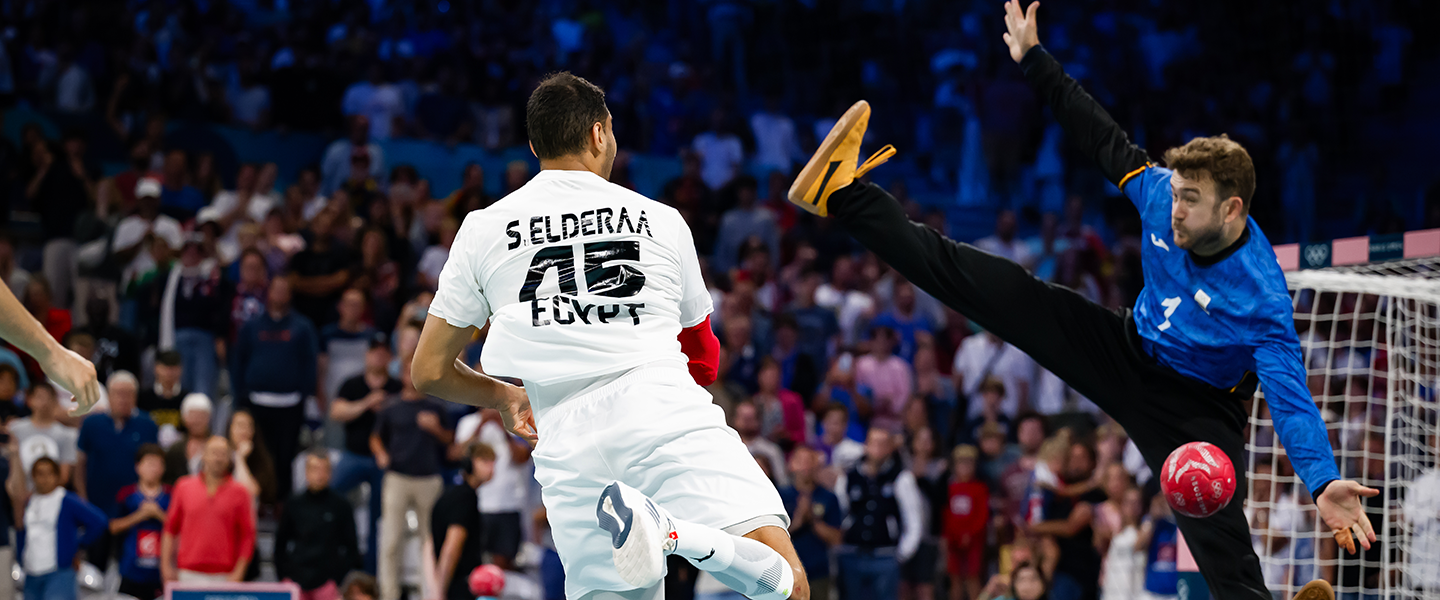How did Spain learn from their mistakes to seal an Olympics semi-finals berth
07 Aug. 2024

Down four goals with only 15 minutes to go is not a situation any team wants to find themselves in. Especially in a quarter-finals of the Olympic Games. Especially against an Egypt team which had already proven to be able to beat strong European sides like Hungary and Norway in the preliminary round. A team which also gave Denmark nightmares in the second half, cutting the deficit which separated them from 10 goals to three goals.
But Spain are no pushovers. And despite facing a generational change in their squad, with the experienced players either injured or not selected, leaving way to younger players like Daniel Fernandez or Ian Tarrafeta, they still found a way to control their emotions, providing the best 15 minutes at Paris 2024 to push the match in extra-time.
And there, probably the most experienced Spain player, goalkeeper Gonzalo Perez de Vargas, the team captain, provided his team with a huge boost, finishing with 17 saves, including two in the last seconds of the extra-time, against Seif Elderaa and Ahmed Hesham. Just like that, Spain took a 29:28 win and secured a semi-finals berth at the Olympics.
How does a match like that is felt on the court, even for an experienced player like Perez de Vargas?
“With a lot of ups and downs, sometimes with frustration, sometimes happiness, there are a lot of emotions in a very short time. But from there, we have also now lowered the tension a little and in the end, there is also the huge feeling of pride in managing to turn around a game as difficult as we had,” says Perez de Vargas.
Spain had a roller-coaster of a year in 2024. In January, at the EHF EURO, they failed to make the main round for the first time in 22 years. They also beat Serbia, 54:53 on aggregate, in the 2025 IHF Men’s World Championship qualifiers, after being nearly out with a hit-and-miss outing in the second leg.
But when it mattered the most, Spain duly delivered on the biggest of stages, with some help from Barcelona pair of Aleix Gomez, who scored eight goals, and Perez de Vargas, who was sublime in crucial moments, totally dominating Egypt in the closing minutes of the match.
“It was a very even match on paper, but I think we had a hard time getting into the match. I don't know if there are many players in our squad who have been playing matches of this calibre so far, maybe it was their first time, and it was hard for us to go for the match like we did the other day against Croatia, when we also faced elimination,” says the Spain goalkeeper.
“But anyway, we knew that in the past we have turned around more difficult results for us, but the feeling was that we were not getting close enough in the necessary time.”
Yet Spain believed in themselves and with the experience they had in the past, they used all the adversity to create a better performance, including a seven-on-six tactic in attack, usually kept on the shelf by coach Jordi Ribera until it is desperately needed.
However, Perez de Vargas had his doubts and his emotions could clearly be seen in the dying seconds of the match, when Spain took the lead, 29:28, with 30 seconds to go, as Aleix Gomez converted a penalty. In fact, Perez de Vargas could not even bear to watch, having his back turned, facing the net of his goal.
“I prefer not to see the penalties. I don’t know why, I think it’s a superstition,” says Perez de Vargas.
And then, the goalkeeper managed two key saves, which gifted Spain their fifth semi-finals berth in history at the Olympics. However, “Los Hispanos” lost all their previous four semi-finals, at Atlanta 1996, Sydney 2000, Beijing 2008 and Tokyo 2020. Win this, and they will write history, probably when they least expected it.
“This year has left a huge mark on us both in terms of results and also psychologically and I think that if we had progressed in the European Championship, we would have had a better performance than we did, obviously, but these defeats also make you improve,” concludes Perez de Vargas.

